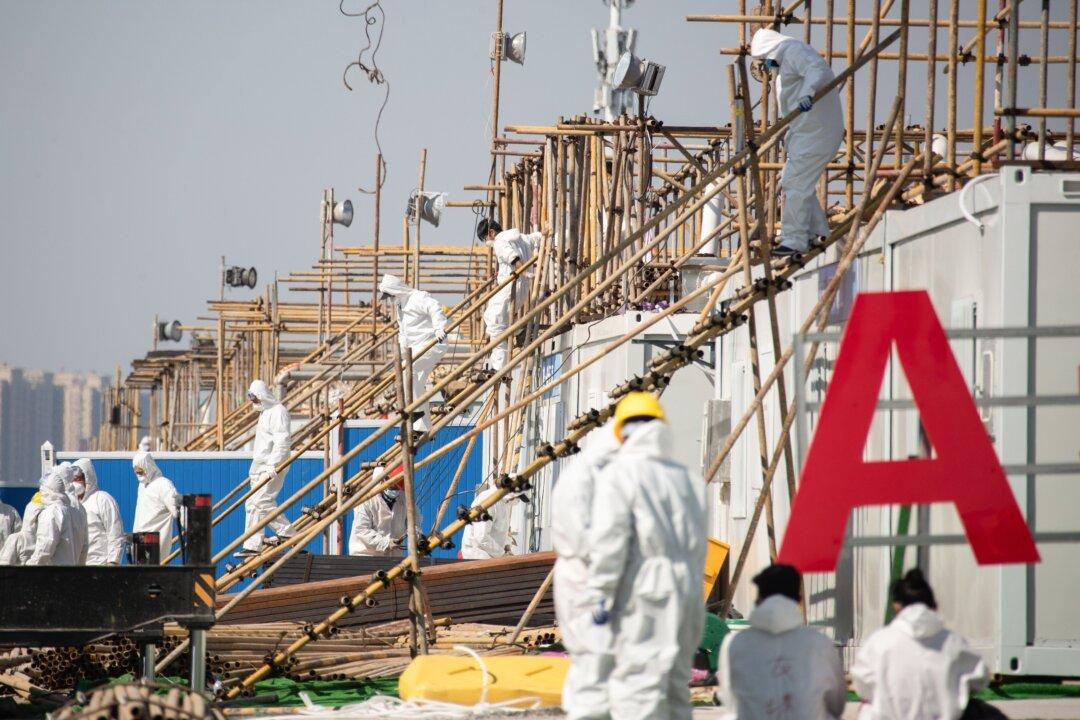All around the world, essential service workers are being recognized as heroes for helping to keep economies going amid the pandemic, but not so in China.
Leishenshan, a 1,600-bed emergency field hospital in Wuhan, China’s outbreak ground zero, was built in a record time of fewer than two weeks, thanks to tens of thousands of construction workers who risked their lives toiling on it day and night.





